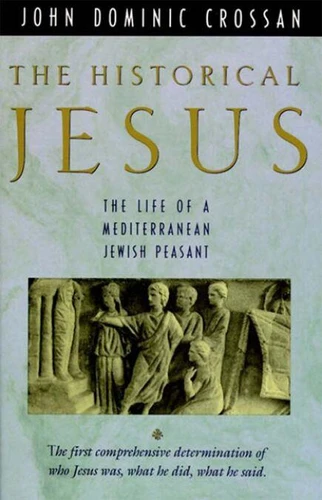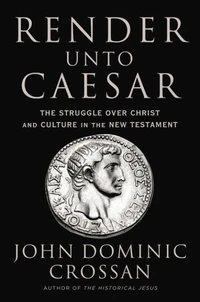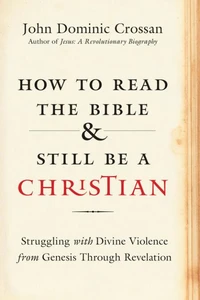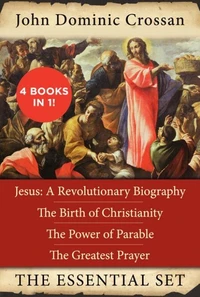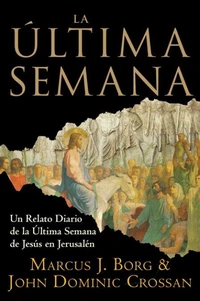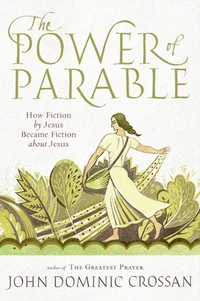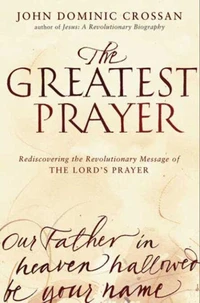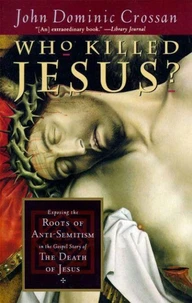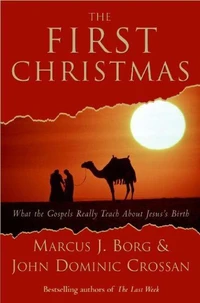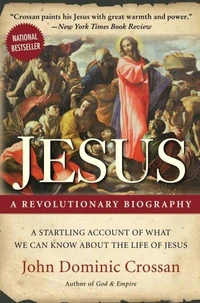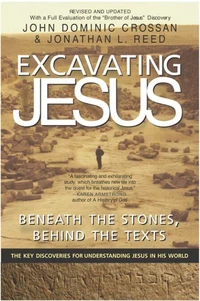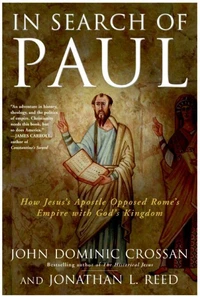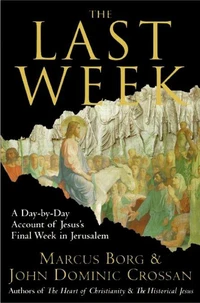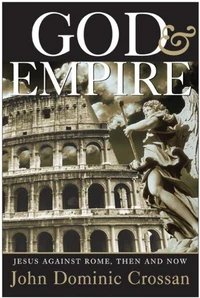The Historical Jesus. The Life of a Mediterranean Jewish Peasant
Par :Formats :
Disponible dans votre compte client Decitre ou Furet du Nord dès validation de votre commande. Le format ePub protégé est :
- Compatible avec une lecture sur My Vivlio (smartphone, tablette, ordinateur)
- Compatible avec une lecture sur liseuses Vivlio
- Pour les liseuses autres que Vivlio, vous devez utiliser le logiciel Adobe Digital Edition. Non compatible avec la lecture sur les liseuses Kindle, Remarkable et Sony
- Non compatible avec un achat hors France métropolitaine
 , qui est-ce ?
, qui est-ce ?Notre partenaire de plateforme de lecture numérique où vous retrouverez l'ensemble de vos ebooks gratuitement
Pour en savoir plus sur nos ebooks, consultez notre aide en ligne ici
- FormatePub
- ISBN978-0-06-197821-0
- EAN9780061978210
- Date de parution13/07/2010
- Protection num.Adobe DRM
- Infos supplémentairesepub
- ÉditeurHarperOne
Résumé
Conventional wisdom has long held that too little is known about the historical Jesus to say definitively much more than that he lived and had a tremendous impact on his followers. But with his ground-breaking work The Historical Jesus, John Dominic Crossan demonstrates that Jesus is actually one of the best documented figures in ancient history; the challenge is in the complexity of the sources.
Crossan's unique methodology combines social anthropology, Greco-Roman history, and the literary analysis of specific pronouncements, confessions and anecdotes involving Jesus.
This synthesis of all three disciplines provides the most definitive presentation of the historical Jesus yet attained. The Jesus who emerges is a savvy and courageous Jewish Mediterranean peasant, a radical social revolutionary, with a rhapsodic vision of economic, political, and religious egalitarianism and a social program for creating it. The Historical Jesus reveals the true Jesus--who he was, what he did, and what he said. John Dominic Crossan is generally regarded as the leading historical Jesus scholar in the world.
He is the author of several bestselling books including The Historical Jesus, Jesus: A Revolutionary Biography, The Birth of Christianity, and Who Killed Jesus? He lives in Clermont, FL. "The most important scholarly book about Jesus in decades." - Marcus Borg, author of Jesus: A New Vision
This synthesis of all three disciplines provides the most definitive presentation of the historical Jesus yet attained. The Jesus who emerges is a savvy and courageous Jewish Mediterranean peasant, a radical social revolutionary, with a rhapsodic vision of economic, political, and religious egalitarianism and a social program for creating it. The Historical Jesus reveals the true Jesus--who he was, what he did, and what he said. John Dominic Crossan is generally regarded as the leading historical Jesus scholar in the world.
He is the author of several bestselling books including The Historical Jesus, Jesus: A Revolutionary Biography, The Birth of Christianity, and Who Killed Jesus? He lives in Clermont, FL. "The most important scholarly book about Jesus in decades." - Marcus Borg, author of Jesus: A New Vision
Conventional wisdom has long held that too little is known about the historical Jesus to say definitively much more than that he lived and had a tremendous impact on his followers. But with his ground-breaking work The Historical Jesus, John Dominic Crossan demonstrates that Jesus is actually one of the best documented figures in ancient history; the challenge is in the complexity of the sources.
Crossan's unique methodology combines social anthropology, Greco-Roman history, and the literary analysis of specific pronouncements, confessions and anecdotes involving Jesus.
This synthesis of all three disciplines provides the most definitive presentation of the historical Jesus yet attained. The Jesus who emerges is a savvy and courageous Jewish Mediterranean peasant, a radical social revolutionary, with a rhapsodic vision of economic, political, and religious egalitarianism and a social program for creating it. The Historical Jesus reveals the true Jesus--who he was, what he did, and what he said. John Dominic Crossan is generally regarded as the leading historical Jesus scholar in the world.
He is the author of several bestselling books including The Historical Jesus, Jesus: A Revolutionary Biography, The Birth of Christianity, and Who Killed Jesus? He lives in Clermont, FL. "The most important scholarly book about Jesus in decades." - Marcus Borg, author of Jesus: A New Vision
This synthesis of all three disciplines provides the most definitive presentation of the historical Jesus yet attained. The Jesus who emerges is a savvy and courageous Jewish Mediterranean peasant, a radical social revolutionary, with a rhapsodic vision of economic, political, and religious egalitarianism and a social program for creating it. The Historical Jesus reveals the true Jesus--who he was, what he did, and what he said. John Dominic Crossan is generally regarded as the leading historical Jesus scholar in the world.
He is the author of several bestselling books including The Historical Jesus, Jesus: A Revolutionary Biography, The Birth of Christianity, and Who Killed Jesus? He lives in Clermont, FL. "The most important scholarly book about Jesus in decades." - Marcus Borg, author of Jesus: A New Vision

